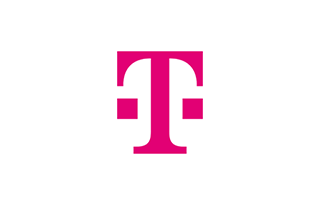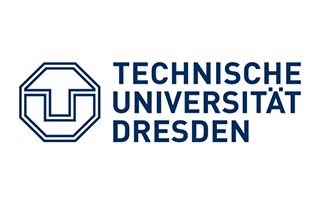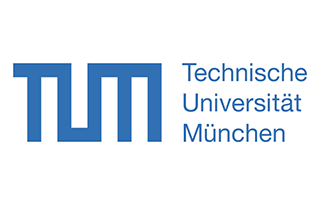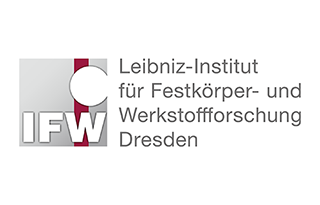
DEUTSCHE TELEKOM AG, T-LABS
T-Labs is the Research & Development department of Deutsche Telekom, which sets its focus on translating new technology trends and delivering tangible results into Deutsche Telekom’s innovation portfolio. Our current research areas are: Future Networks, Spatial Computing, Network Security & Digital Twin, and Decentralized Systems.
Co-Research is the key mission for the team, with the vision of achieving a superior customer experience and exploring disruptive technologies for future telecommunications infrastructures. From our base in Berlin, we are cooperating with multiple universities in Germany, Europe, Israel and globally.
In QUIET, DTAG focuses on the end-to-end functionality of an integrated Quantum IoT system, as well as on architectural and operational aspects that will characterize the to-be capabilities in terms of their feasibility and cost efficiency. In particular DTAG will investigate innovation potentials along the principles of “Security-by-Design”, i.e. how to to robustly provision security and privacy from the sensor to the backend leveraging quantum resources. Moreover, the opportunities of performance increases in terms of higher data throughput and energy efficiency along the IoT-end-to-end perspective will be examined.

Prof. Dr. Frank H. P. Fitzek (DTPK):
More than 70 scientists work at the Deutsche Telekom Professorship for Communication Networks. The main research areas of the chair focus on 5G/6G, the tactile internet, quantum communication, post-Shannon theory, network coding (NC), compressed sensing (CS), software defined networks (SDN), network function virtualization (NFV) and distributed Cloud Computing (CC). The chair manages the 6G-life research hub, the Cluster of Excellence Tactile Internet with Human-in-the-Loop (CeTI) and coordinates the Center for Explainable and Efficient AI Technologies (CEE-AI).
Prof. Dr.-Ing. habil. Jürgen Czarske (MST):
The Chair for Measurement and Sensor System Technology (MST) headed by Prof. Czarske has proven expertise in the development of systems for photonics and optics. Prof. Czarske is a Fellow of OPTICA, SPIE and EOS. Since working for Siemens AG in the 1980s, he has had experience in optical communications technology. MST has received over 80 scientific awards and honors, most recently the Joseph Fraunhofer Award / Robert M. Burley Prize and the Bertha Benz Prize from the Daimler and Benz Foundation. The MST chair is working on paradigm shifts for computer-aided laser systems that are tailored to specific areas of application. Using deep learning, few-mode and multimode fibers can be characterized to transfer to physical layer security and quantum communications.
Prof. Dr. Kambiz Jamshidi (IPD):
The Integrated Photonic Devices (IPD) group uses a fabless approach, i. H. focuses on the modelling, design and characterization of photonic circuits. The IPD is involved in several projects/initiatives and works together with several national and international research institutes and companies. The IPD group deals with the realization of photonic structures with EPIC and PIC technologies with a focus on quantum communication and (classical and non-classical) computing applications.
Prof. Dr.-Ing. Dirk Plettemeier (HFT):
The Chair of High Frequency Technology (HFT) headed by Prof. Plettemeier has extensive experience in the development of photonic systems and high frequency electronics as well as application-oriented communication systems. In particular, the integration of broadband antennas and ultra-fast data transmission systems is a focus. In addition to the antenna development, this also includes the investigation of the propagation of electromagnetic waves in the specific application scenario, the characterization of electromagnetic material properties for the antenna design and the metrological characterization of the manufactured antennas. The chair also has experience with the measurement and construction of microwave photonic and optical communication systems.

TU München
Prof. Dr.-Ing. Dr. rer. nat. Holger Boche (LTI):
The LTI working group at TUM has been working on the development of quantum communication since 2010. An important building block for a future technological use of quantum systems for information transmission is a mathematically developed and operationally meaningful quantum information theory. As in the case of classical information, an asymptotic theory in the sense of Shannon is a suitable framework. The main focus of the research work is a quantitative understanding of the role of various communication resources of a classical and quantum-theoretical nature and their mutual relationships with one another.
Dr.-Math. Christian Deppe (LNT):
Since 2018, Dr. Deppe teaches and researches in the field of quantum technologies at the Chair of Communications Engineering at the Technical University of Munich led by Prof. Gerhard Kramer (Humboldt Professorship 2010). dr In teaching and research in electrical engineering, Deppe represents the areas of quantum error correction, quantum algorithms, quantum communication, coding theory, discrete mathematics and optimization. dr In Munich, Deppe heads the BMBF projects “Quantum Repeater in Quantum Communication Networks” and “Information and Coding Theory for Quantum Token-Based Authentication and Secure Storage”.
Dr. rer. nat. Janis Nötzel (TQD):
He received his doctorate in 2012 with his dissertation “Quantum Communication under Channel Uncertainty”. He worked in the BMBF projects “System models and multipath communication protocols for quantum repeaters” and “Eavesdropping-proof communication, attacks and system design”, was a DFG scholarship holder and headed a research transfer at the TU Dresden. In 2018 he moved to the Technical University of Munich as head of the first DFG Emmy-Noether group in electrical engineering for the field of quantum technologies, where he researches the integration of quantum technology into communication networks and the areas of quantum networks, information-theoretical modeling of physical processes and software engineering for quantum hardware represents.

Leibniz-Institut für Festkörper- und Werkstoffforschung (IFW) Dresden:
The Institute for Integrative Nanosciences (IIN) of the Leibniz Institute for Solid State and Materials Research Dresden (IFW) deals with nanotechnologies that enable a variety of applications from nanorobotics to quantum photonics. The nanophotonics group of the IIN, led by Dr. Caspar Hopfmann, is a world leader in the manufacture of entangled photon pair sources based on semiconductor quantum dots. It was recently proven that the quantum dots as quantum systems can also be used as optically active quantum storage systems. The group is an active partner of the QR.X and ct.qmat associations.
